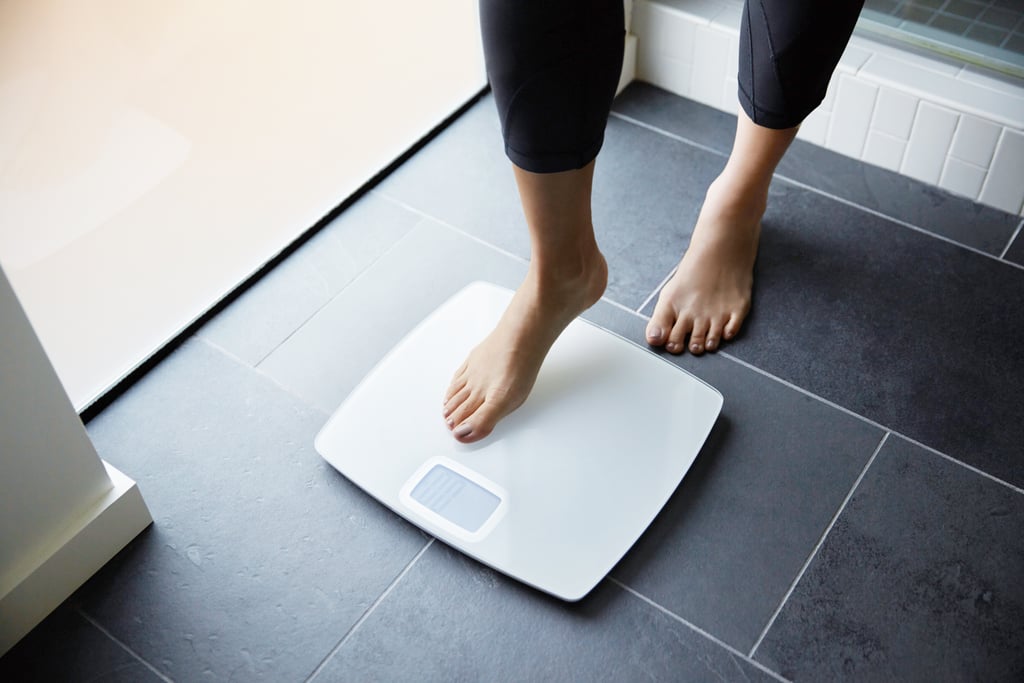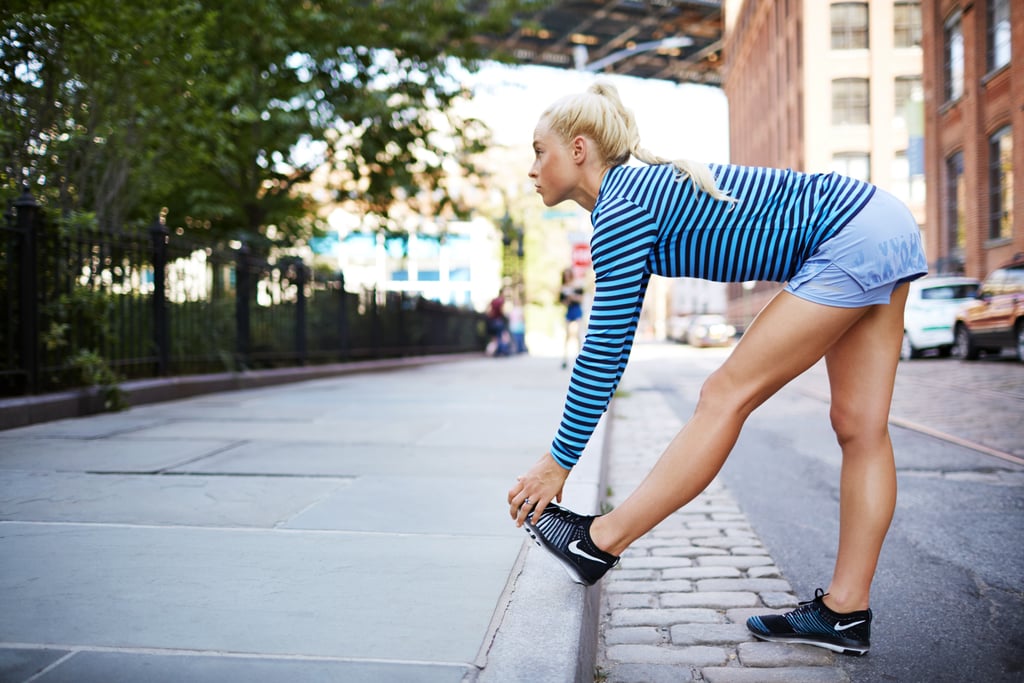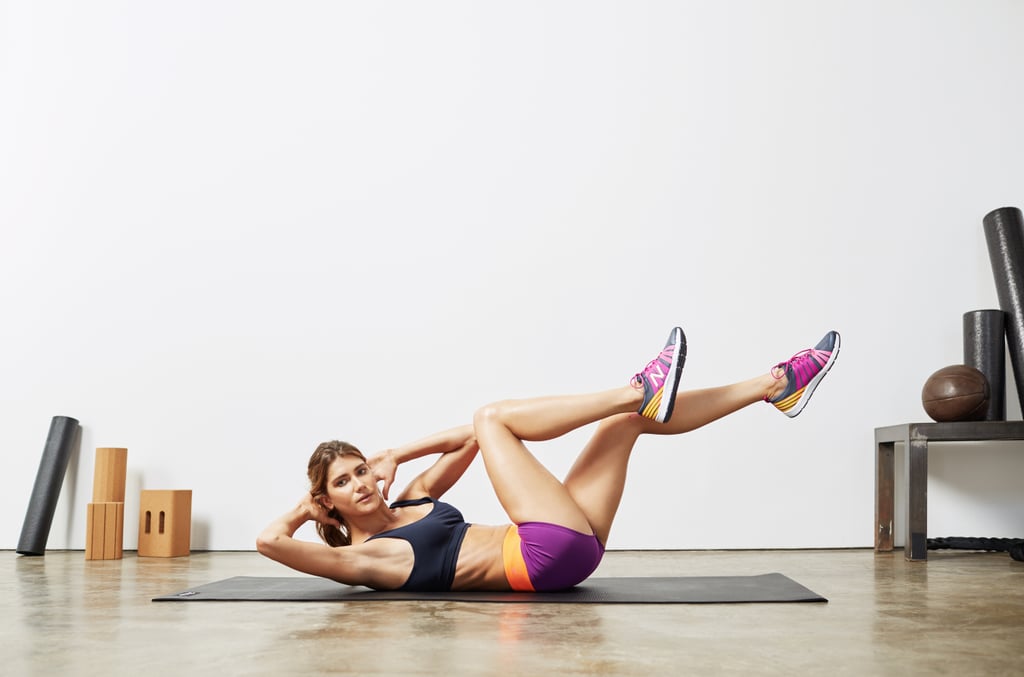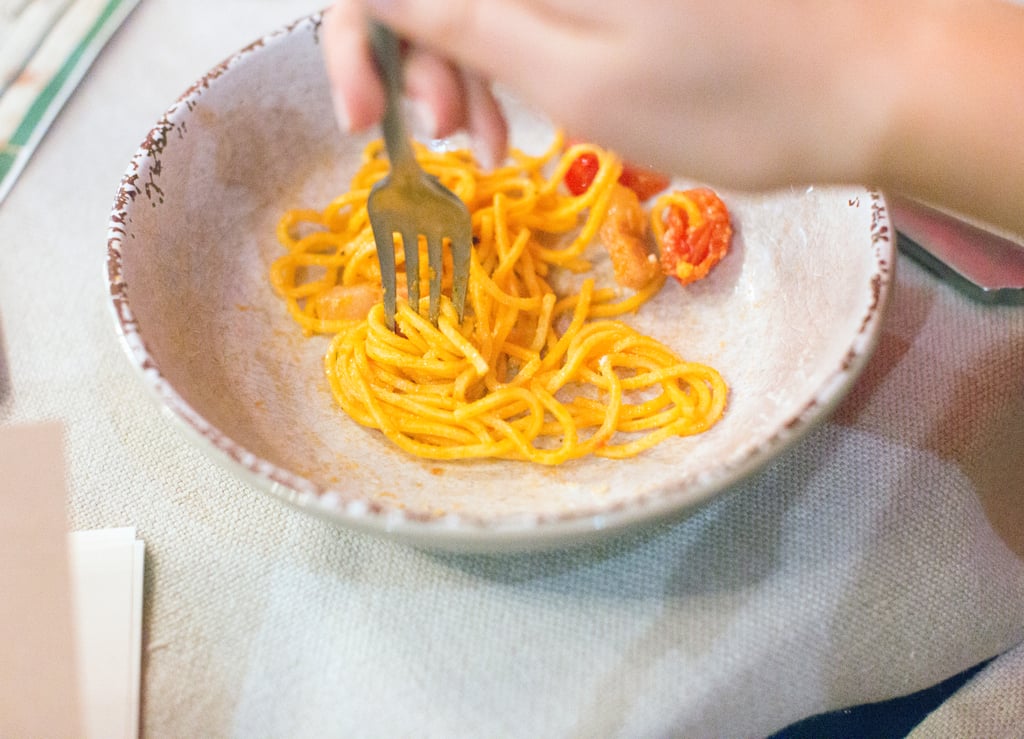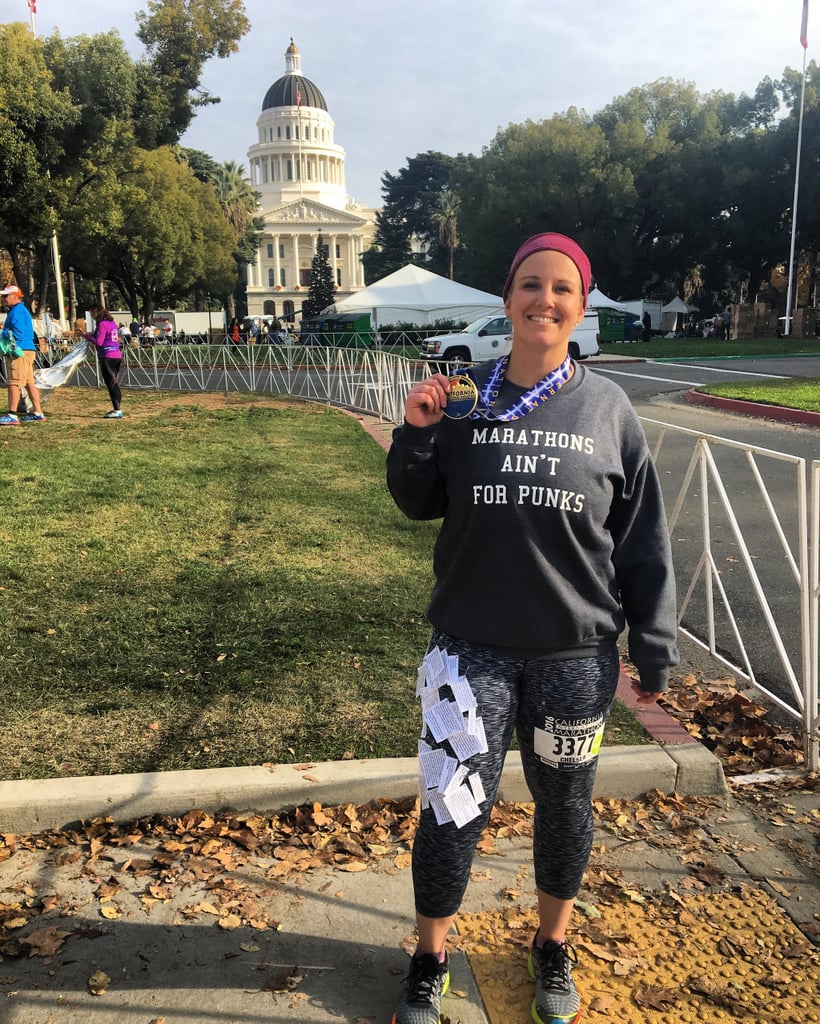A little over a year ago, I ran my first ever marathon. Prior to that, I had completed four half marathons [1], and I felt like I had become too comfortable with that distance. Sure, 13.1 miles is still a challenge [2] — I'm not crazy — but it wasn't a new challenge. I wanted more.
I remember being 16 years old and watching my mom train for her first marathon [3]. She had just turned 40 and wanted to accomplish something huge (in addition to all the other amazing things she had already done). She would be gone for hours every Saturday morning, come home exhausted but victorious, and groan her way into an ice bath [4]. I admired her hard work, and simultaneously thought she was completely nuts. When I saw her cross the finish line that Fall, limping and teary and so incredibly proud, I knew I had to feel that feeling.
Fast-forward more than a few years, I found myself signing up for my first marathon [5] (with my mom and brother, of course). We ran our weekday runs alone and met up just about every weekend for our long runs. The training was grueling, and more often than not, I'd find myself hobbling around for a day or two after my long run. There's definitely a certain level of crazy required to run 26.2 miles for fun.
After five months of training, the day was here. The weather was perfect, my playlist was set [6], and we had awesome custom tank tops. We ran and completed the California International Marathon [7]. I didn't score an impressive time, but I finished, but not without some surprises. Here's what I learned along the way and wish I would have known before.
Running is not a quick fix to get skinny.
I've lost weight from training for a marathon [8] in the past, but I was also meticulously tracking every bite of food [9] that I ate (and would run extra if I wanted to eat more).
I used the Nike Running App [10] or MyFitnessPal [11] during my marathon training, and while both are great apps, they can differ by a few hundred calories when estimating what you've burned. It's super easy to overestimate how much you're burning and underestimate how much you're eating, so it's important to be mindful.
You are going to be hungry.
It's not just that you might eat an extra snack or two during the day. Running made me ravenous, an "eat everything in sight" kind of hungry [13]. Just remember that fueling your body to accommodate the demands you're putting on it [14] is more important than trying to lose weight during your training. Your body is doing something amazing.
Marathon training is going to be a huge part of your life for several months.
At times it may seem like your whole life revolves around marathon training [15], from the way you eat to planning things around long runs to the insane amount of laundry you'll be doing. It's not something you can do passively, but it's so worth it.
Buying good running shoes is so important.
Let me repeat that: Buy. Good. Running. Shoes. I know they are a little expensive [16], but it's one investment you don't want to skimp on if you're aiming for the finish line.
I, unfortunately, learned this lesson the hard way. My trusty running shoes had been discontinued and when they became too worn halfway through my training, I was too stubborn to try out a new pair and I found myself suffering from shin splints [17]. It got so bad that I had to take four weeks off of running leading up to the race. I finally bought a new pair of running shoes [18], just one long run before race day and magically, my shins were fine. Missing four weeks at the tail end of training was devastating for my performance (as was running a race in shoes that hadn't been broken in), and it could have completely been avoided.
Running shouldn't be your only exercise.
I'd be lying if I said I didn't know that already, but that didn't stop me from carrying on without any cross training [19]. My legs became overworked, my back hurt all the time, and I'm sure it didn't help my recovery time after long runs.
I've recently started lifting weights [20], and it's already made a huge difference in both my speed and endurance. It's also important to have a stretching or yoga routine [21]. A combination of running, strength training, and stretching is crucial for avoiding overuse injuries.
You don't need to carb-load before a long run.
Carb-loading [22] to me sounds like an open invitation to go absolutely HAM on a plate of spaghetti and garlic bread, but eating a huge carb-heavy dinner the night before a race makes me feel sluggish in the morning. There are other foods runners can eat [23] to keep their energy levels up.
What you eat while training is super important for performance and recovery.
Everyone is different, but you should make sure you eat healthy foods full of nutritious ingredients [24]. My favourite breakfast before a short run is a bowl of Honey Nut Chex with almond milk. It's light and provides quick carbohydrates to fuel my workout.
For longer runs, I eat half of a bagel with peanut butter and honey. I've always stuck with Clif Shot Bloks for mid-run energy and electrolytes, but once I got into much longer distances, I was getting so hungry. I started adding in half of a Larabar about eight miles in — they offer carbs and protein and are super easy to digest [25].
Proper hydration is hugely important.
Water alone isn't enough [26]. You'll definitely want to have an electrolyte drink with you as well.
I had some electrolytes on race day [27], but I don't think I had enough. My legs started cramping around mile 14, and it was so miserable. I had trained using a run-and-walk interval, which became impossible. Any time I stopped to take one of my walking breaks, the cramping just got worse. I ended up running the rest of the race without stopping, and I just wasn't prepared for that.
You can't prepare for everything.
You might get surprise rain [28]. The aid stations may not be stocked well. You might have hills that you didn't anticipate because the race course is "net downhill" — which doesn't mean there won't be hills; it just means that you'll finish at a lower elevation than you started. Just like in life, you can do your best to prepare, but there will still be things that are out of your control.
Have a plan for when you hit the wall.
It may come at different points for different people, but everyone hits a wall at some point. My mom gave me an awesome tip: have a kickass playlist [29], but don't start listening to music until you hit the wall.
I was really struggling mentally when my legs started cramping around mile 14, so I put my headphones in and it was a game changer. I also had 26 friends and family members each write me a note, which my mom then laminated, hole-punched, and put through a safety pin. I read one note at the start of every mile, pinned it back to my pants, and let their note carry me until the next mile. Some were funny, some sweet, some serious, but each one gave me so much strength.
Plan to take the day after your marathon off from work.
You're going to be stiff, sore, and exhausted, believe me! I felt a little out of it for about a day, and I was so glad I didn't have to go anywhere or do anything other than rest.
It takes a lot of preparation and hard work, and sometimes you might feel like quitting.
You'll have blisters [30], you might chafe (Body Glide will be your best friend [31]), and you will have to swap some late nights out for rest and hydration. Embrace the suck — nothing compares to the feeling of crossing that finish line. You'll be sweaty, exhausted, and victorious.
